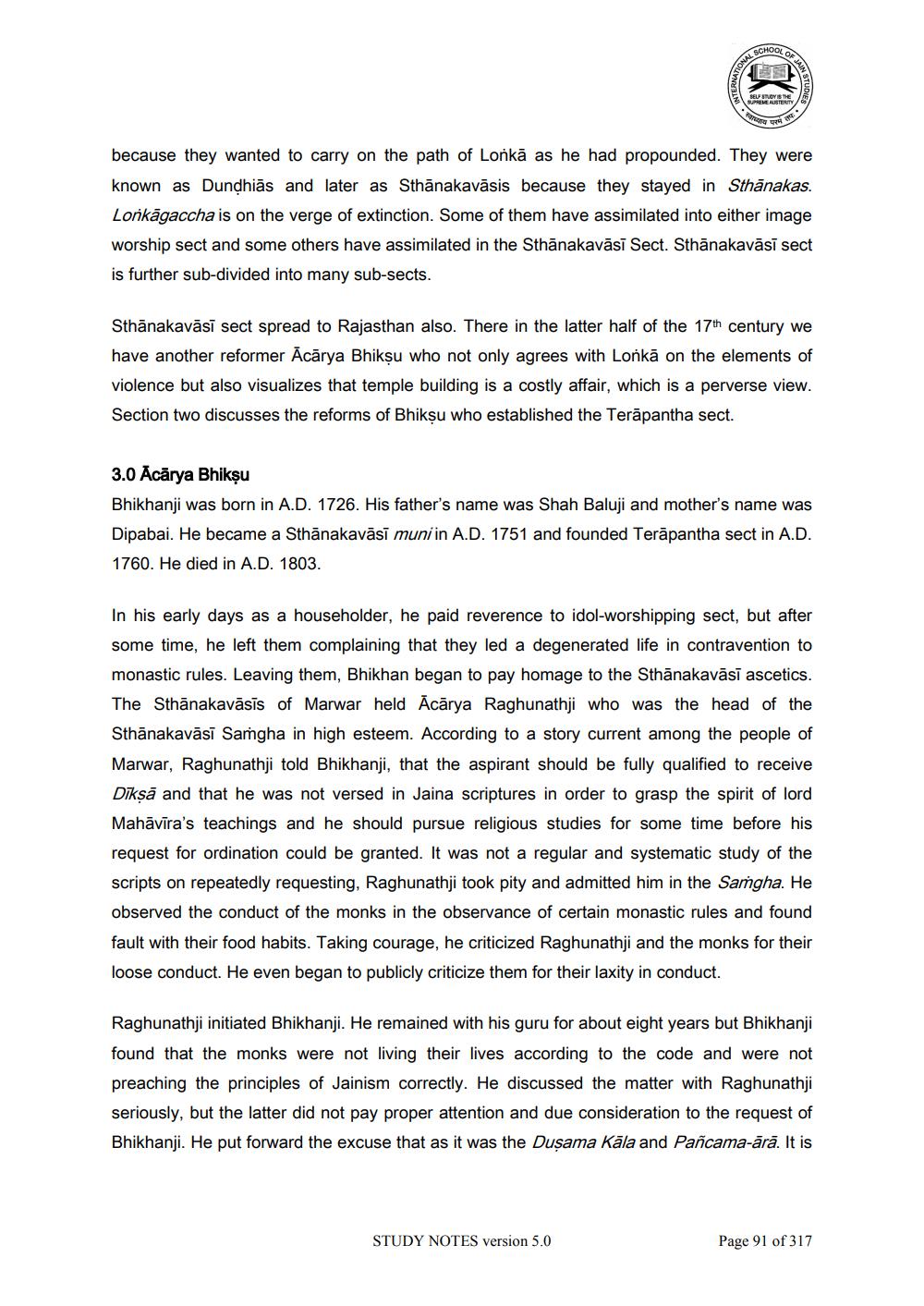________________
because they wanted to carry on the path of Lonkā as he had propounded. They were known as Dundhiās and later as Sthānakavāsis because they stayed in Sthānakas. Lorikāgaccha is on the verge of extinction. Some of them have assimilated into either image worship sect and some others have assimilated in the Sthānakavāsi Sect. Sthānakavāsī sect is further sub-divided into many sub-sects.
Sthānakavāsī sect spread to Rajasthan also. There in the latter half of the 17th century we have another reformer Ācārya Bhikṣu who not only agrees with Lonkā on the elements of violence but also visualizes that temple building is a costly affair, which is a perverse view. Section two discusses the reforms of Bhikṣu who established the Terāpantha sect.
3.0 Acārya Bhikṣu Bhikhanji was born in A.D. 1726. His father's name was Shah Baluji and mother's name was Dipabai. He became a Sthānakavāsī muni in A.D. 1751 and founded Terapantha sect in A.D. 1760. He died in A.D. 1803.
In his early days as a householder, he paid reverence to idol-worshipping sect, but after some time, he left them complaining that they led a degenerated life in contravention to monastic rules. Leaving them, Bhikhan began to pay homage to the Sthānakavāsi ascetics. The Sthānakavāsīs of Marwar held Ācārya Raghunathji who was the head of the Sthānakavāsi Saṁgha in high esteem. According to a story current among the people of Marwar, Raghunathji told Bhikhanji, that the aspirant should be fully qualified to receive Diks, and that he was not versed in Jaina scriptures in order to grasp the spirit of lord Mahāvīra's teachings and he should pursue religious studies for some time before his request for ordination could be granted. It was not a regular and systematic study of the scripts on repeatedly requesting, Raghunathji took pity and admitted him in the Saṁgha. He observed the conduct of the monks in the observance of certain monastic rules and found fault with their food habits. Taking courage, he criticized Raghunathji and the monks for their loose conduct. He even began to publicly criticize them for their laxity in conduct.
Raghunathji initiated Bhikhanji. He remained with his guru for about eight years but Bhikhanji found that the monks were not living their lives according to the code and were not preaching the principles of Jainism correctly. He discussed the matter with Raghunathji seriously, but the latter did not pay proper attention and due consideration to the request of Bhikhanji. He put forward the excuse that as it was the Duşama Kāla and Pañcama-ārā. It is
STUDY NOTES version 5.0
Page 91 of 317




